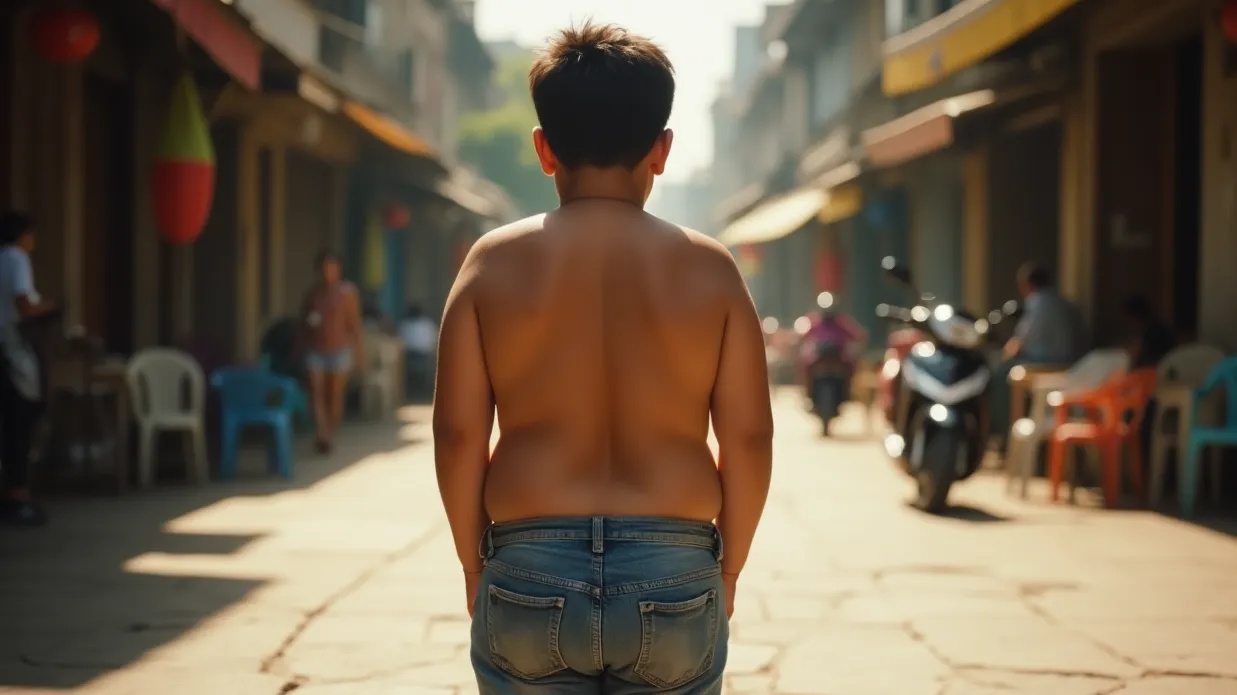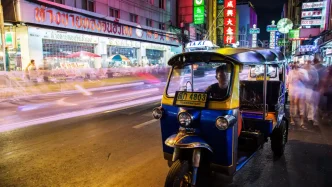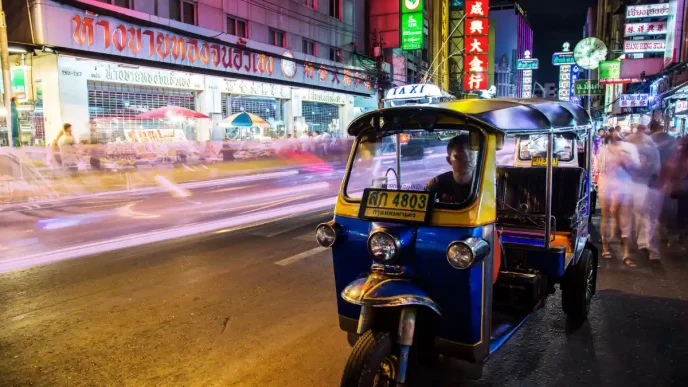In Vietnam, a looming health crisis driven by rising obesity and diabetes rates has sparked urgent calls for action. With sugary drinks identified as a key contributor to this epidemic, the World Health Organization (WHO) and local health advocates are pressing the government to introduce a tax on these beverages. As non-communicable diseases (NCDs) strain the nation’s healthcare system, experts argue that now is the critical moment for policy intervention to curb consumption and fund public health initiatives.
A Growing Health Burden
Vietnam, once known for its lean population and traditional diet, is grappling with a rapid shift in lifestyle and dietary habits. Urbanization and globalization have brought an influx of sugary drinks and processed foods, contributing to a sharp rise in obesity and related illnesses. According to WHO data, over 20% of Vietnamese adults are now overweight, a figure that has doubled in the past decade. Type 2 diabetes, closely linked to excessive sugar intake, affects an estimated 6% of the population, with numbers projected to climb if trends continue unchecked.
Children are not spared either. The prevalence of childhood obesity has surged, particularly in urban centers like Ho Chi Minh City and Ha Noi, where sugary sodas and energy drinks are marketed aggressively to young consumers. Health experts warn that this generation faces a future of chronic illness if preventive measures are not prioritized. “The burden on our healthcare system is already evident” said Dr. Tran Quoc Cuong, a public health specialist based in Ha Noi. “We’re seeing younger patients with conditions that were once rare in Vietnam.”
The Case for a Sugary Drink Tax
The WHO has long advocated for taxes on sugary drinks as an effective tool to reduce consumption and generate revenue for health programs. In Vietnam, where public health funding remains limited, such a policy could serve a dual purpose. A tax of 20% on sugary beverages, as proposed by international health bodies, could cut consumption by up to 15%, based on models from countries like Mexico and the Philippines, where similar measures have shown success.
Beyond curbing intake, the revenue from a sugary drink tax could be channeled into healthcare infrastructure, nutrition education, and subsidies for healthier food options. For instance, in Thailand, a tiered sugar tax introduced in 2017 has raised significant funds while encouraging manufacturers to reformulate products with less sugar. Vietnamese advocates point to this as a potential blueprint, though cultural and economic differences must be considered. “A tax isn’t just about deterrence; it’s about building a healthier future” said Nguyen Thi Lan, a policy advisor with a local health NGO.
Yet, the proposal faces hurdles. Vietnam’s beverage industry, which includes both global giants and local producers, is a significant economic player. Critics of the tax argue it could harm small businesses and low-income consumers who rely on affordable drinks. The government must balance these concerns with the urgent need to address public health, a challenge that requires careful policy design to avoid unintended consequences.
Economic and Social Implications
Economically, a sugary drink tax could have ripple effects across Vietnam’s food and beverage sector. The industry employs thousands and contributes to GDP, particularly through exports of energy drinks and flavored teas. A tax could lead to reduced sales, job losses, or higher prices that disproportionately affect poorer households. To mitigate this, some experts suggest a graduated tax system, targeting high-sugar products while sparing low-sugar or traditional drinks like tra da (iced tea), a cultural staple.
Socially, the policy would need public buy-in to succeed. Vietnamese consumers have embraced sugary drinks as symbols of modernity and convenience, especially among the youth. Changing these habits requires not just taxation but also education campaigns to promote healthier alternatives. The government’s past efforts to tackle smoking through taxes and awareness programs offer a potential model, though dietary behaviors are often harder to shift. “People need to see the value of change” said a Ho Chi Minh City-based nutritionist. “It’s not enough to impose a cost; we must offer better choices.”
Moreover, regional disparities must be addressed. Rural areas, where healthcare access is limited, may see less immediate benefit from tax revenue compared to urban centers. Ensuring equitable distribution of funds will be key to avoiding perceptions of unfairness and building trust in the policy.
Global Context and Local Realities
Vietnam is not alone in facing this dilemma. Across Southeast Asia, countries like Indonesia and Malaysia are witnessing similar health trends, driven by rising disposable incomes and changing diets. Malaysia’s 2019 sugar tax, which applies to soft drinks and juices, has reduced consumption by about 9%, though enforcement and public awareness remain challenges. Vietnam could learn from these experiences, adapting policies to fit its unique socio-economic landscape.
One critical factor is enforcement capacity. Vietnam’s tax administration, while improving, faces issues with compliance and informal markets. Street vendors and small shops, which dominate rural retail, may evade taxation, undermining the policy’s impact. Strengthening regulatory mechanisms and engaging local communities will be essential to ensure the tax achieves its goals.
Additionally, the role of international beverage companies cannot be ignored. These corporations often wield significant influence over policy through lobbying and marketing. In Vietnam, where foreign investment is a key economic driver, resisting industry pushback will test the government’s resolve. Independent monitoring and transparency in decision-making could help counterbalance these pressures.
Political Will and Public Sentiment
The introduction of a sugary drink tax hinges on political will. Vietnam’s government, led by the Communist Party of Vietnam (CPV), has shown commitment to public health in areas like tobacco control and vaccination programs. However, dietary policies are a newer frontier, and resistance from economic stakeholders could delay action. Health advocates are hopeful but cautious, noting that previous proposals for sugar taxes have stalled due to industry opposition and bureaucratic inertia.
Public sentiment, as gauged through social media platforms reveal a mixed picture. Urban professionals and health-conscious individuals often support the idea, citing personal experiences with weight gain or family health issues. Rural voices, however, express skepticism, viewing the tax as an additional burden on already tight budgets. Bridging this divide will require targeted communication from policymakers, emphasizing the long-term benefits over short-term costs.
The timing of the proposal adds urgency. With Vietnam recovering from the economic impacts of the COVID-19 pandemic, health system resilience is a national priority. A sugary drink tax could signal the government’s proactive stance on preventing future crises, positioning Vietnam as a regional leader in public health policy. Yet, without broad consensus, the measure risks being seen as punitive rather than protective.
Looking Ahead
As Vietnam stands at a crossroads, the debate over a sugary drink tax encapsulates broader questions about balancing economic growth with public welfare. The health crisis is undeniable, but so are the challenges of implementing transformative policy in a complex socio-economic environment. Whether the government can muster the political capital to act remains an open question, one that will shape the nation’s health landscape for decades to come.
It remains unclear whether Vietnam is addressing this on the basis of genuine concerns raised by experts and professionals based on scientific data, or whether this is simply mirroring policy from Western governments.
For now, advocates and citizens alike watch closely, hoping for a strategy that prioritizes well-being without leaving vulnerable communities behind. In the streets of Ha Noi and Ho Chi Minh City, the choice between a sugary soda and a healthier future is becoming more than just a personal decision—it’s a national imperative.
















